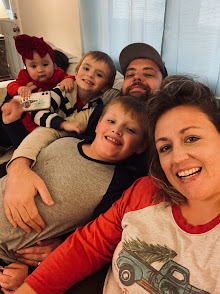Interprofessional Practice as an SLP
Interprofessional Practice
as an SLP in a SNF
During my time at my placement at the skilled nursing facility (SNF), I witnessed and participated in interprofessional practice (IPP). The American Speech-Language-Hearing Association (ASHA) defines IPP as a framework that supports collaboration between professionals, making service delivery more successful and optimizing outcomes for those we serve.
At my clinical practicum site for the medical adult population, there were various disciplines working together including speech-language pathologists (SLPs), physical therapists (PTs) and PT assistants (PTAs), occupational therapists (OTs) and certified occupational therapy assistants (COTAs), and the director of rehabilitation, as well as medical staff (e.g., CNAs, medical assistants, nurses, dietician, director of nursing, kitchen staff, etc.) and the patient their families.
Collaboration between these professions should be effective with best outcomes for the patient in mind. Communication should be appropriate, in that, it is required for patient success so that HIPAA is not violated. I collaborated often with kitchen staff, nursing staff and families during my time at the SNF to increase quality of life for the residents.
Working with the kitchen staff was sometimes very difficult. Advocating for the least restrictive diet for my patients so they could enjoy meals yet be safe and efficient while doing so, was often a challenge. Patients in a SNF often have issues with dentition impacting their ability to masticate regular textures and require mechanical soft textures. The kitchen staff struggled with fulfilling this diet modification, providing meals that did not fit within the recommended diet texture. My supervisor and I were consistently communicating with the importance of appropriate recommended diet textures to increase staff awareness, and safety, efficiency, and quality of life for our patients.
Although some collaboration is difficult it is important to improve care for patients. There are also pros to collaborating with other professions within the SNF. It is always good to collaborate with nursing and medical staff to monitor how intervention is being generalized or if any new concerns need to be addressed. This communication can provide SLPs with clinical information to guide intervention.
Overall, IPP is very important in all settings and should always be utilized during patient care to improve service delivery for patients and their families.
This video from ASHA is a great resource for school-based IPP.
Blogroll
Darla Gardner's blog provides helpful information for speech-language pathologists in various settings.
Rebecca Reinking's blog shares information specific to speech sound disorders (SSD).
The Gift of Gab is a blog by Jessica, where she gives tips, tricks, and strategies to focus on teaching.
B The Impact blog created by Alexandra Barrera to empower disadvantaged youth to achieve goals and success.
The Little Lady Bug Shop blog by Jacqueline Ortiz discusses ways to celebrate culture and diversity in the school setting and why it's important.
Digital SLP, Jessica Cassity, shares her experience as an SLP through the Speech Space podcast. In this post she shares tips and resources for effective collaboration.
Global Teletherapy platform includes a blog with several posts encompassing interprofessional practice (IPP) and collaboration. Howard Goode and Elana Shinkle, MA, CCC-SLP provide an explanation and tips for school-based SLPs for IPP. Click here and here to go directly to these resources.
(no picture of authors on website)









Comments
Post a Comment